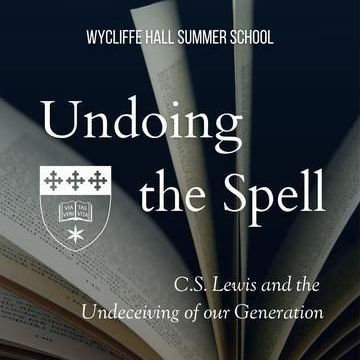Work as if it all depends on God?
After another round with Covid in the last year, God has been teaching me a few things about work/life balance, being realistic about my limits and trusting Him in the process of it all (which is much easier to write about than learn!).
***
"Work as if it all depends on God"?
Yes, I realise that’s not how the saying goes. But no, it’s not a typo.
“Pray as if it all depends on God, work as if it all depends on you.”
That is the version we might be more familiar with. In other words: when you pray, pray hard! When you work, work hard! It’s some serious pull-yourself-up-by-the-bootstraps wisdom. My adrenaline spikes just thinking about it.
But is this ‘wisdom’ really that wise? I think not.
The issue(s) with “pray as if it all depends on God”
- Our prayer does not need to be a feat of strength to convince God to help us. Yes, there is a place for continuing, ongoing prayer and petition. Take the parable of the unjust judge and the widow in Luke 18. She pesters him until he gives her what she wants. But the point Jesus makes is that God is not like the unjust judge—he doesn’t delay in granting justice. Yes, we have to exercise patience and perhaps pray for things over extended periods of time, but that doesn’t mean God needs convincing to hear our prayers. He is at work. He is on His way. Consider the reassurance of James 1:7: “Every generous act of giving, with every perfect gift, is from above, coming down from the Father of lights, with whom there is no variation or shadow due to change.”
- Prayer is as natural as everyday conversation: it is not a sales pitch. Talking to another person, most of the time, is a natural flowing process. Unless we’re nervous, stressed or angry, we just talk. Say what we want to say. Prayer is as ordinary as asking your spouse to pick up a pint of milk from the store. This is where I’m at, God. Yes, there are times where our prayers may have us on our knees because we’re praying about something that really hurts or scares us. Prayer has range. It doesn’t need urgency. It needs honesty. And God is in the pause.
- Yes, everything depends on God. But that was true before you started praying. (And God is aware.) Luke 12:22-31 reminds us not to worry because God has all things in his hands. Consider the lilies, the ravens, or the grass in the field. God was at work long before you existed and will be long after we’ve returned to the dust. Remember what Colossians 1 says about Christ as the image of God: “He is the image of the invisible God, the firstborn of all creation; for in him all things in heaven and on earth were created, things visible and invisible, whether thrones or dominions or rulers or powers—all things have been created through him and for him. He himself is before all things, and in him all things hold together.” However dark or confusing the world might be, however it might seem as if God were not present: His work is not finished. The end of the story has not come.
I prefer “pray as if it all depends on you” rather than “on God.” Why? Because if it does all depend on me, I quite quickly realise I need help. It brings me to my knees. It humbles me. If I am called to loving action within this world, then I know I’m not qualified and need help. I can’t remember who it is or where this comes from (and I’ll probably get the details wrong), but it’s the story of the guy who on his busiest days would have to get up extra early to pray for 2 hours to be able to survive the day. To do the work of doing justice, loving kindness and walking in humility (Mic 6:8) demands that I pray and do so in earnest, because on my own my actions are anything but.
In short, pray as it all depends on me reminds me that in prayer I approach a God who loves me, a God has it all in His hands, a God I come to in desperate need of His help to play my part.
But what about “work as if it all depends on me”?
I have a beef with this one too. It seems like a holy sanction of pushing ourselves to the limit. I don’t see much grace in such a pattern and it chafes against the picture of work and rest we see in Scripture.
Take the commandment to keep Sabbath. In Deuteronomy it is tied to what God has done in liberating his people from slavery in Egypt and making them into His own people:
“Remember that you were a slave in the land of Egypt, and the Lord your God brought you out from there with a mighty hand and an outstretched arm; therefore the Lord your God commanded you to keep the sabbath day.”
The Israelites had been delivered from forced, heavy labour and provided with a promised land to till and inhabit. Everything they'd been given was grace: freedom to work, a land to farm and fruitful trees they did not plant. Stepping away from their work in the midst of all this grace kept their focus and reminded them it all depended on what God had brought about. It was an act of continued trust of that God's grace was enough in their life and livelihoods. And all were to rest from work on the Sabbath, not just those in charge but their slaves, immigrants and even the livestock. This was a gift for all not for those that deluded themselves into thinking they deserved it.
“Work as if it all depends on God” makes much more sense.
Why? Because:
- It reminds me I’m not responsible for the outcome. I am called to diligent, faithful work today, which contributes to the outcome. But I cannot control tomorrow. Disaster could strike. Sickness. The economy could crash. An ancient Israelite had no power over the sun, rain or harvest other than faithfully tending to their crops. We are subject to so many and changing dynamics in the world that are far above our paygrade. Thinking the outcome all depends on us is fantasy.
- It reminds me of the God who holds all things in His hands. Work is part of life, but it’s not to be idolized. The salvation we have is about eternal salvation from sin, but also safe passage through this life. That’s not to say life is free from suffering (quite the opposite), but that life under God is to be lived by active trust in God. Work is part of the things that God gives us along the way, but it’s just work. Part of a much bigger, divinely-held, whole.
- It lets me be human. I do the work I can do. I work within my limits and not even right at them. God is opposed to slavery in all forms, and that includes the kind that is self-imposed and self-driven. As an antedote to this, I heard of a great word recently: underscheduling. This is the idea that we ought to give ourselves space between appointments rather than cramming as much as possible into it all. It means leaving wiggle room for yourself: allowing more time than you need to drive to the store, do that project or to make that meeting. Rather than running our reserves down to almost empty and doing the most we can with as little as possible, underscheduling doesn't let the tank get below ¼ full. Life is a marathon not a sprint—and underscheduling is a way to pace oneself and (I suspect) trust God in the process, acknowledging we are embodied human beings, part of God's Creation and in need of breath, rest, and living within our limits.
Working as if it all depends on God invites me in to remember God is the one who brought me here, sustains me here and will take care of tomorrow. I do my part, but like all things: it’s ultimately in his hands. What grace!
******
Photo by Spencer Scott Pugh on Unsplash
Subscribe to
My Newsletter
Sign up here to receive quarterly updates (and occasional other news blasts) about how ministry is going and our move to the U.K.



